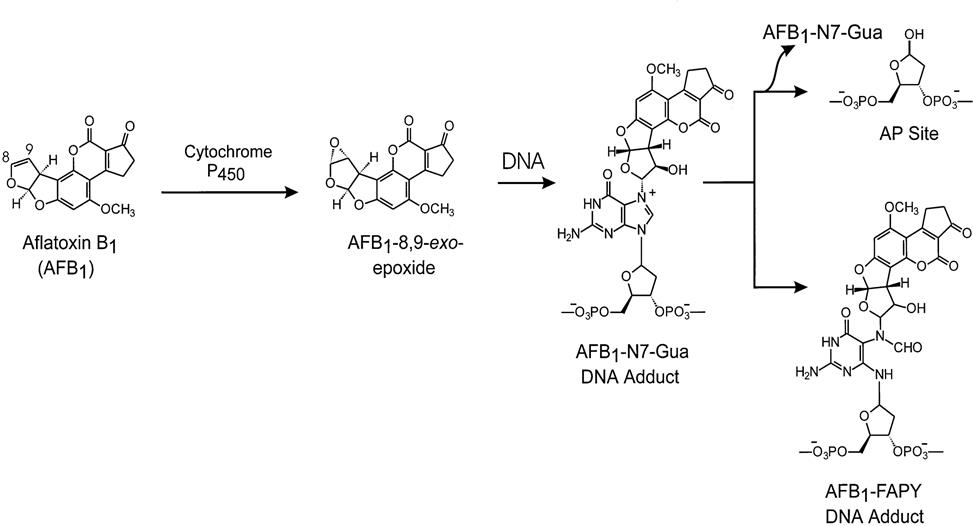Part:BBa_K1961007
CYP1A2, an enzyme of cytochrome P450 protein family that metabolizes toxin in liver
The cytochrome P450 proteins are monooxygenases which catalyze many reactions involved in drug metabolism and synthesis of cholesterol, steroids and other lipids. CYP1A2 is able to metabolize some PAHs to carcinogenic intermediates. Other xenobiotic substrates for this enzyme include aflatoxin B1, and acetaminophen.
The figure shows that CYP isoenzymes metabolize AFB1 to the 8,9-epoxide, which reacts with DNA. While a number of products are formed, the initial major adduct is AFB1-N7-Gua. This adduct has a destabilized glycosidic bond and depurinates to the AP site shown. Alternatively, the primary adduct can suffer opening of its imidazole ring, giving rise to the chemically and biologically stable formamidopyrimidine adduct, AFB1-FAPY. These three DNA lesions, AFB1-N7-Gua, AFB1-FAPY and the AP sites, are candidate precursors to the mutations induced by AFB1 [1]
Sequence and Features
- 10COMPATIBLE WITH RFC[10]
- 12COMPATIBLE WITH RFC[12]
- 21INCOMPATIBLE WITH RFC[21]Illegal BglII site found at 1400
- 23COMPATIBLE WITH RFC[23]
- 25INCOMPATIBLE WITH RFC[25]Illegal NgoMIV site found at 320
Illegal NgoMIV site found at 407
Illegal AgeI site found at 390 - 1000INCOMPATIBLE WITH RFC[1000]Illegal BsaI.rc site found at 1120
Reference:
1. Maryann E. Smela, Sophie S. Currier, Elisabeth A. Bailey, John M. Essigmann. The chemistry and biology of aflatoxin B1 from mutational spectrometry to carcinogenesis. Carcinogenesis 2001. 22(4): 535-545
| None |

